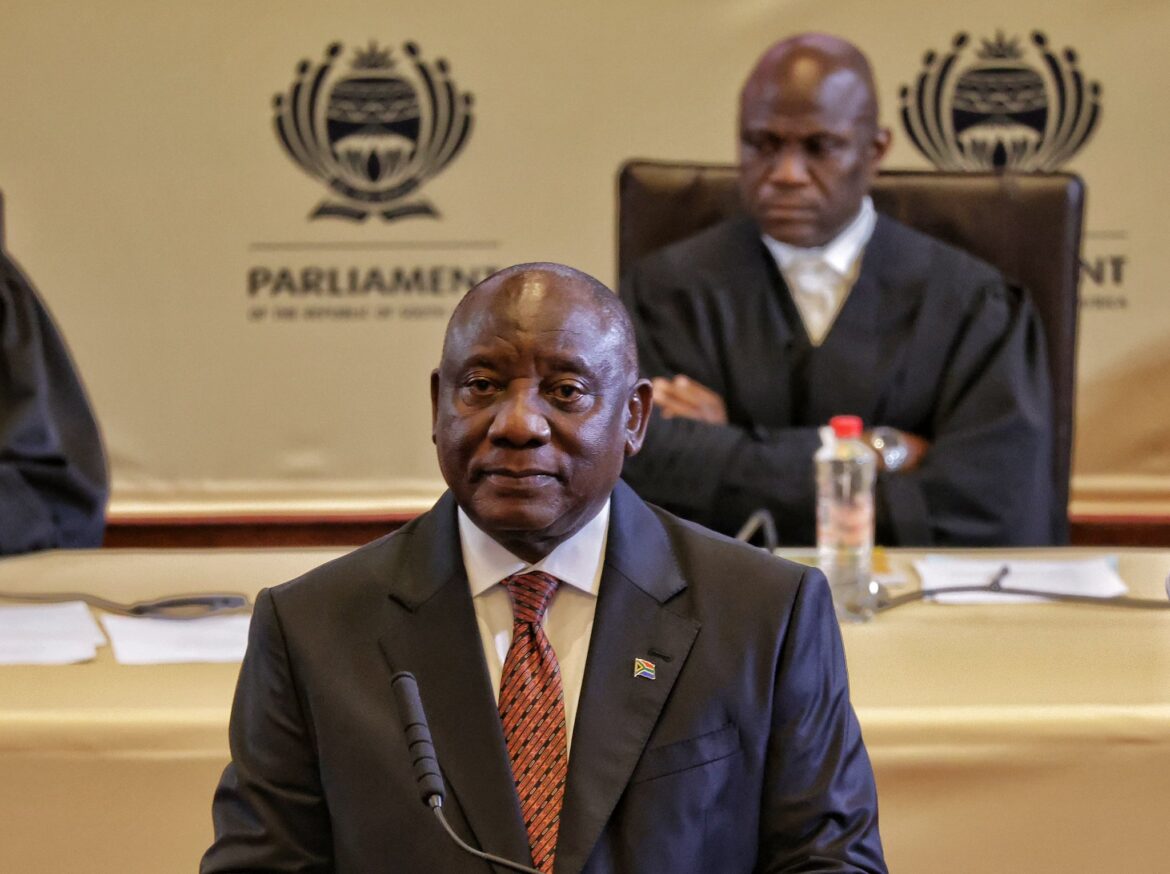Political analysts have voiced strong criticisms of President Cyril Ramaphosa’s 2025 State of the Nation Address (SONA), suggesting that the speech largely mirrored his previous addresses, with promises that remained unfulfilled. Delivered at the Cape Town City Hall on Thursday, the address included a series of ambitious goals and pledges, but experts remain skeptical about the government’s ability to deliver on these promises.
Independent political analyst Dr. Metji Makgoba described Ramaphosa’s speech as filled with promising ideas that highlight South Africa’s unrealized potential. He noted that while the president’s vision of lifting the country from poverty, unemployment, and inequality was commendable, there were significant issues at play that could hinder any real progress. “The president is making promises that the country needs to develop,” said Makgoba, acknowledging the depth of the country’s challenges. He also pointed out that the country’s progress largely depended on attracting private investment, a factor that remains elusive. He argued that the government’s key priorities, such as building state capacity and professionalizing the public sector, could resolve many of the issues, but these efforts would be hampered by the pervasive challenges of corruption, patronage, and historical inequalities.
Makgoba further criticized the disconnect between the president’s vision and the practical realities of South Africa’s economic and political landscape. He stated that the country’s “wicked problems” could not be solved by simply redistributing resources. Instead, he argued that the state would need to restructure the economy to address the root causes of inequality and poverty. Additionally, he took issue with Ramaphosa’s presentation of a socialist speech in a predominantly capitalist society, noting that large corporations and private investors, driven by profit, would continue to consume public resources, leaving people mired in poverty.
While Ramaphosa emphasized the 70th anniversary of the Freedom Charter in his address, calling it the “cornerstone of our democratic Constitution,” political analysts have questioned how relevant this reference is in today’s context. Ramaphosa praised the vision of a united, non-racial, and non-sexist South Africa, which was outlined in the Freedom Charter. However, political analyst Professor Sipho Seepe argued that this reference highlighted Ramaphosa’s disconnect from the reality of the country’s progress. He pointed out that the African National Congress (ANC), under Ramaphosa’s leadership, has not followed through on the promises outlined in the Freedom Charter, particularly when it comes to redistributing the country’s wealth.
“The Freedom Charter speaks to the ANC’s glaring failure in the last 30 years to bring a better life for all,” Seepe commented. He specifically highlighted the Charter’s call for the national wealth, including the mineral wealth beneath the soil and the banks, to be transferred into the ownership of the people. According to Seepe, this promise has not come to fruition, and under Ramaphosa’s presidency, there has been a reversal of some of the gains made since the end of apartheid in 1994. He further criticized the SONA for repeating the same promises of advisory committees and task forces, but with fewer tangible solutions.
In essence, while Ramaphosa’s SONA outlined a vision for South Africa’s future, political analysts remain doubtful about the feasibility of these promises. With the nation’s most pressing issues—unemployment, inequality, and poverty—still unresolved, the effectiveness of the president’s plans and their ability to bring about real change is under intense scrutiny.
